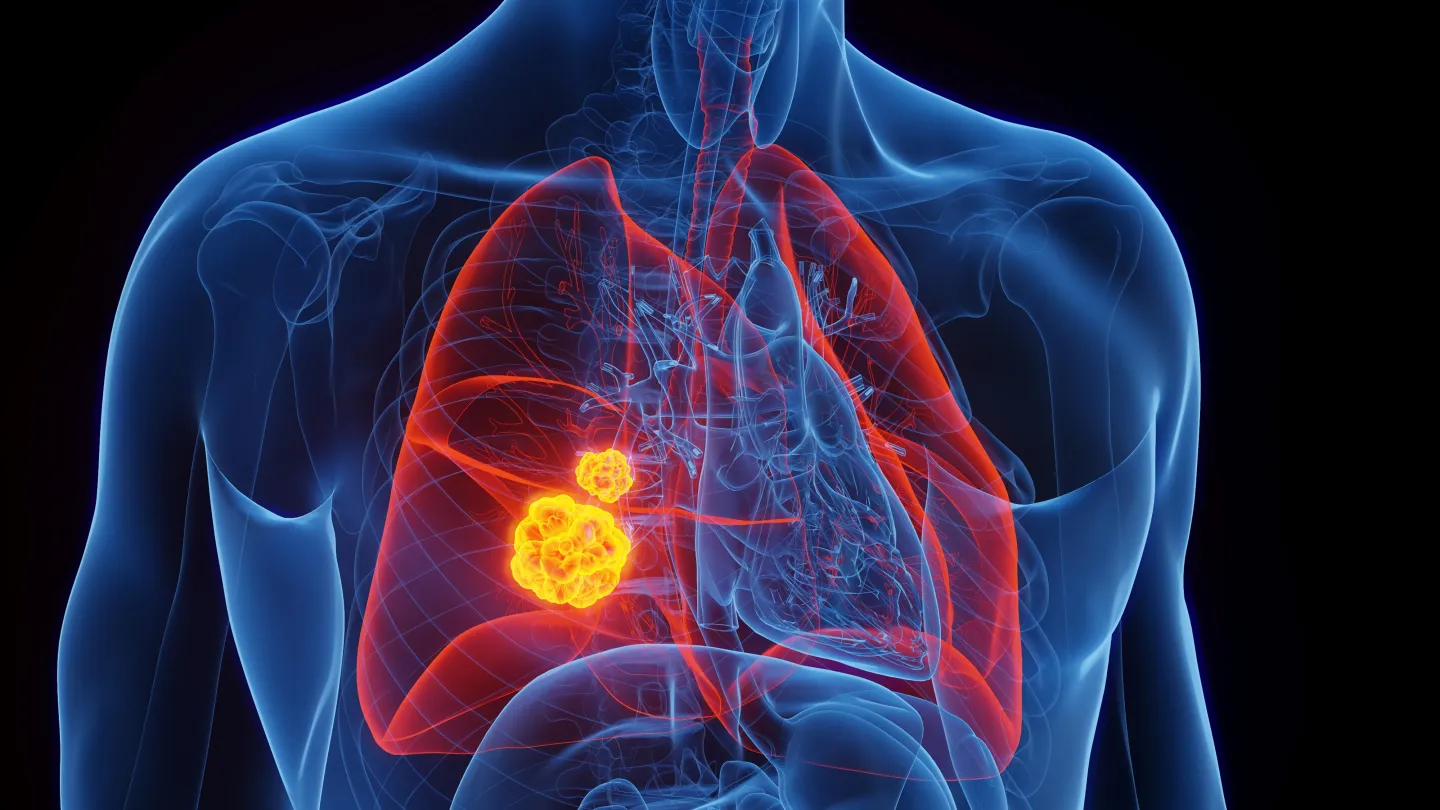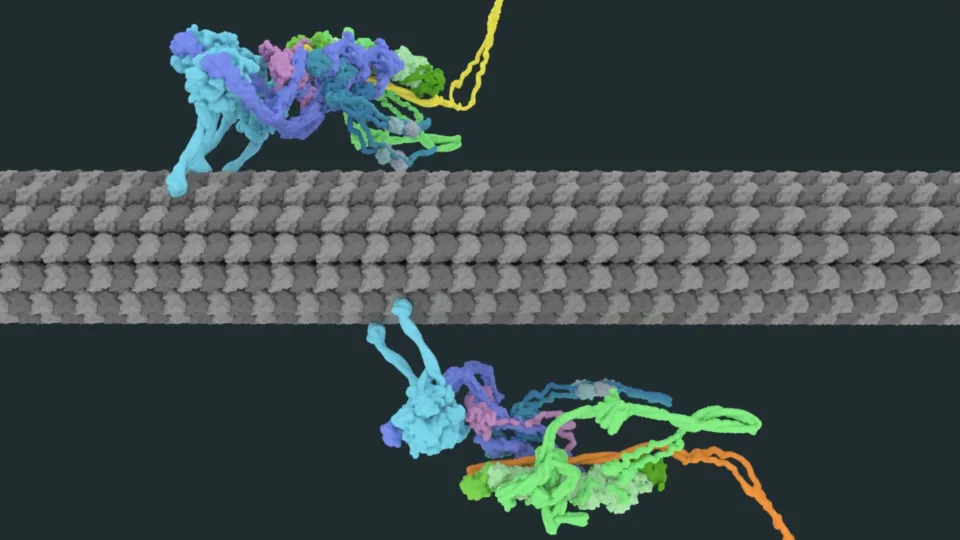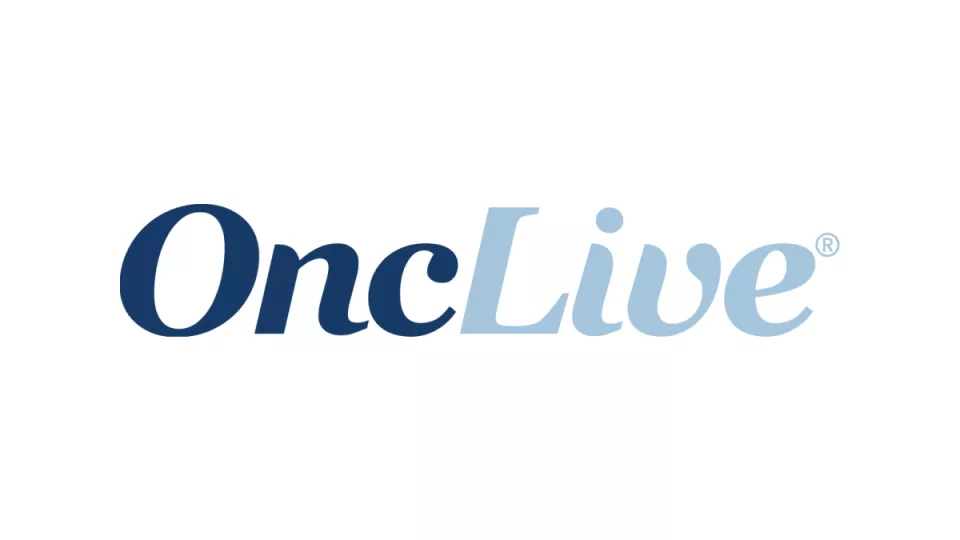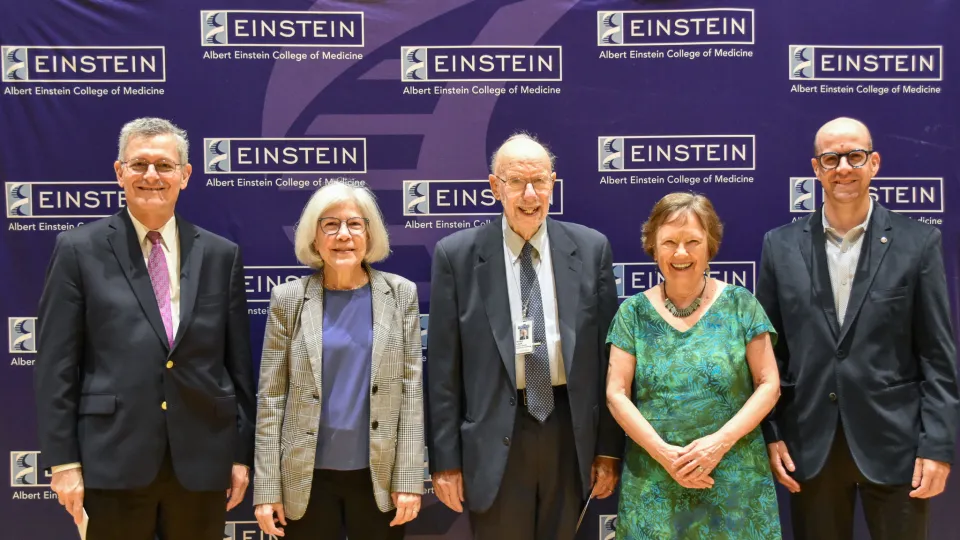News Brief
Novel Treatment Strategy for Non-Small Cell Lung Cancer
June 11, 2025

A normal housekeeping process called chaperone-mediated autophagy (CMA) maintains cell health by degrading and eliminating damaged or potentially dangerous proteins. CMA is highly upregulated in most cancers, enhancing tumor cell survival and increasing resistance to chemotherapy. To date, most efforts to develop treatments that selectively inhibit CMA in cancer cells have been unsuccessful.
In a new study published online on June 9 in EMBO Molecular Medicine, Evripidis Gavathiotis, Ph.D., and Ana Maria Cuervo, M.D., Ph.D., have identified the NCoR1/RARα protein complex as a regulator of CMA in lung cancer. Using a mouse model of non-small cell lung cancer (NSCLC), a common and deadly type of lung cancer, the researchers found that disrupting this complex with a novel first-in-class small molecule called CIM7 can selectively inhibit CMA in cancer cells without affecting healthy cells. The work opens the door for targeted CMA inhibition across a range of cancers and other conditions driven by CMA abnormal upregulation, such as autoimmune diseases.
Dr. Gavathiotis is professor of biochemistry, of medicine, and of oncology, and co-leader of the Cancer Therapeutics Program at Einstein’s National Cancer Institute-designated Montefiore Einstein Comprehensive Cancer Center (MECCC). Dr. Cuervo is distinguished professor of developmental & molecular biology and of medicine, the Robert and Renée Belfer Chair for the Study of Neurodegenerative Diseases, co-director of Institute for Aging Research, and a member of the MECCC and the Marion Bessin Liver Research Center. Mericka McCabe, Ph.D., previously a PhD student in the laboratories of Dr. Gavathiotis and Dr. Cuervo is the publication’s first author.
Albert Einstein College of Medicine has intellectual property protection for a portfolio of technologies related to chaperone-mediated autophagy with application in various disease indications (including cancer, aging, neurodegeneration, and immunosenescence) and is actively seeking licensing partners to further develop and commercialize them. Interested parties can contact the Office of Biotechnology and Business Development at biotech@einsteinmed.edu.



